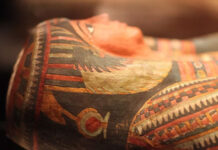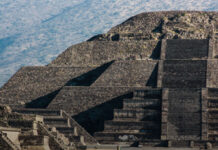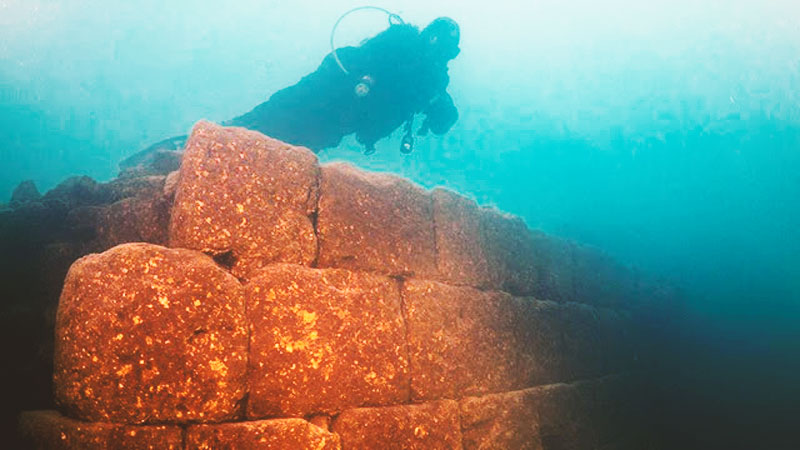
The excavation, led by Van Yüzüncü Yıl University and the government of the province of Bitlis in eastern Turkey, revealed a series of underwater ruins that would have belonged to the Urartu civilization, also known as the Kingdom of Van.
The Urartu culture dates back to the Iron Age period, between the 8th and the 7th century BC, and inhabited the highlands of the Eastern Anatolia region, near the border with Iran.
“There was a rumor that there might be something underwater, but most archaeologists and museum officials told us we wouldn’t find anything,” said dive team leader Tahsin Ceylan.
The team decided to proceed with the search and managed to find these fantastic ruins of the ancient castle.
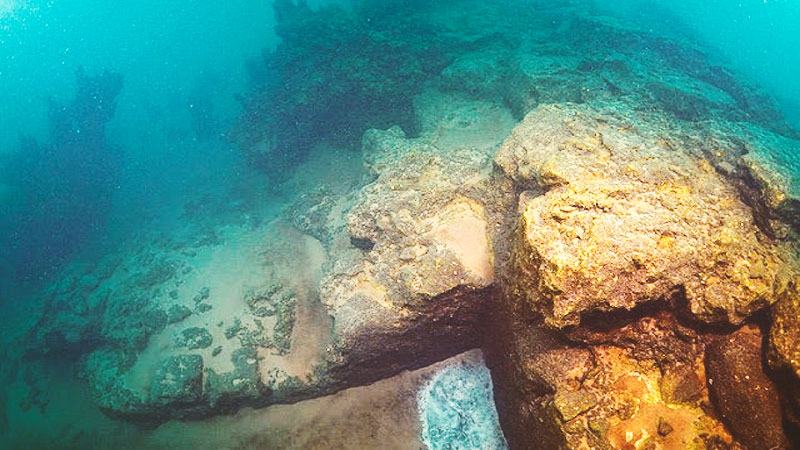
Lake Van was formed by a crater caused by a volcanic explosion from Mount Nemrut and is the largest lake in Turkey and the second largest in the Middle East with a history of at least 6,000 years.
Today, the water level of Lake Van is hundreds of meters higher than it was during the time of the Urartu civilization.
“Civilizations living around the lake established large villages and settlements while the lake’s water level was low, but had to leave the area after its volume increased again,” Ceylan said.
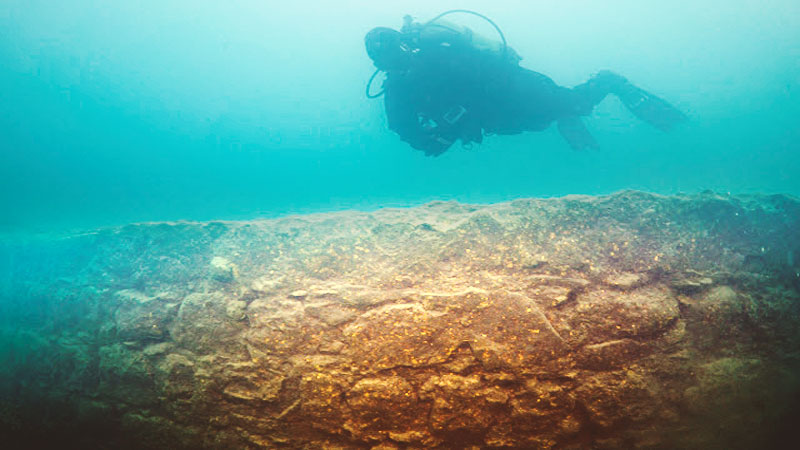
Archaeologists have not been able to determine how deep the castle walls are buried, but about three to four meters (10 to 13 ft.)can be seen above the lake floor.
“We’ll have to do more underwater excavations to find that out,” Ceylan added.
The underwater ruins are expected to attract the interest of thousands of tourists due to their unique historical value.

